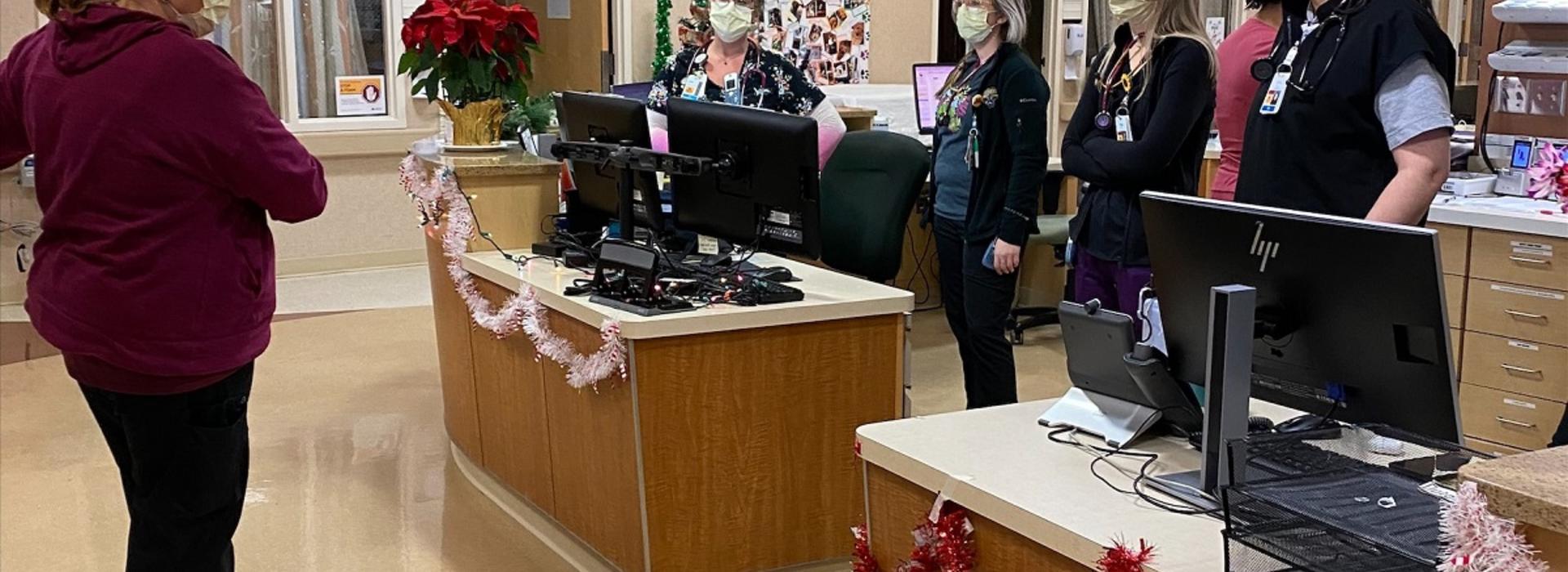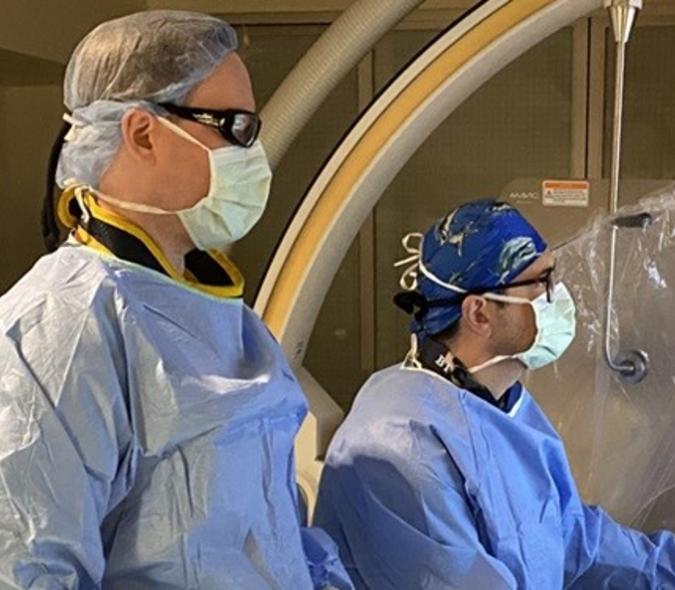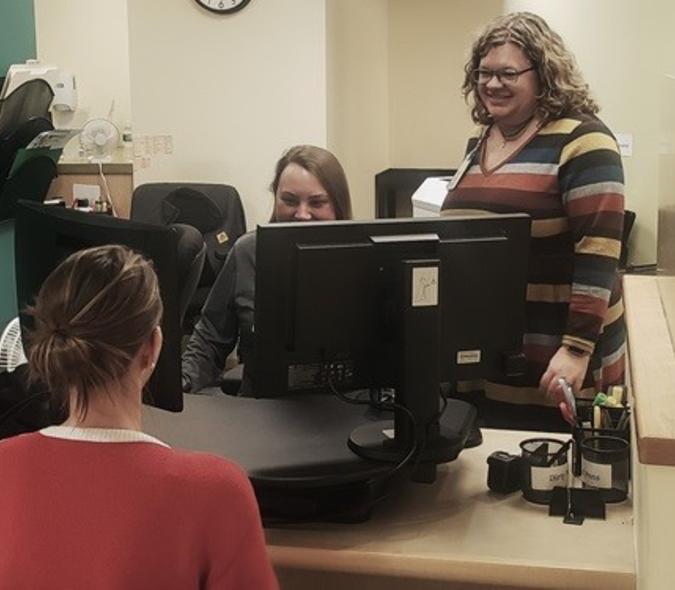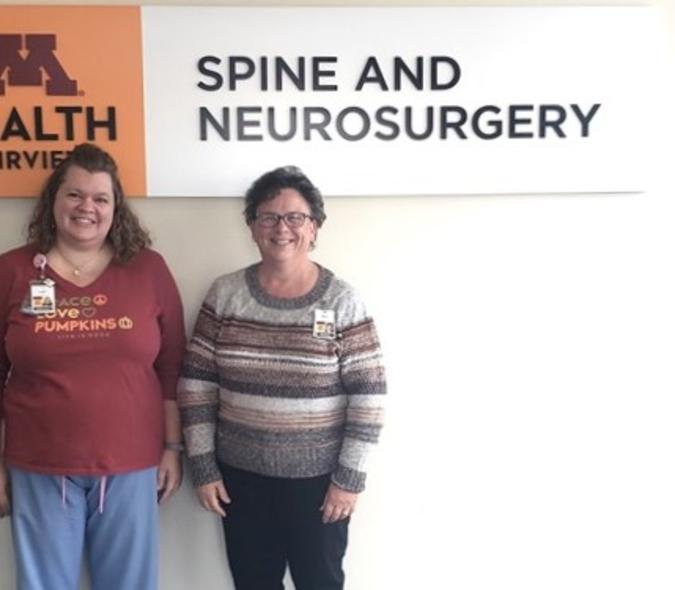
Neuroscience unit nurses embrace multiple patient safety efforts
Patient Safety Awareness Week (March 13 – 19, 2022) is an annual recognition event sponsored by Boston-based Institute for Healthcare Improvement (IHI). The week serves as a dedicated time and platform for raising awareness about patient safety and recognizing the work already being done.
According to IHI, some studies suggest that as many as 400,000 deaths occur in the United States each year as a result of errors or preventable harm. Not every case of harm results in death, yet they can cause long-term impact on the patient's physical health, emotional health, financial well-being, or family relationships.
The IHI believes that preventing harm in health care settings is a public health concern. Everyone interacts with the health care system at some point in life. And everyone has a role to play in advancing safe health care. Nowhere is that commitment more obvious than on the Neuroscience Unit (6A) at M Health Fairview’s University of Minnesota Medical Center (UMCC) in Minneapolis.
Although they’re quick to point out that the Unit’s patient safety efforts are thanks to the entire team, Mary Speake, CNRN, 6A Nurse Manager, and Jenna Doyle, RN, BSN, SCRN, 6A Patient Care Supervisor, lead the charge.
One of the most active patient safety initiatives on the Unit (and throughout UMMC) is known as Rounding to Influence. “Our unit has really taken to it,” said Mary. It involves regular meetings during which various members of the team give presentations about the four safety reliability behaviors of the initiative:
- Speaking up
- Practicing a questioning attitude
- Communicating clearly, and
- Checking the details.
Speaking up
“Speaking up for anything helps create more accountability,” said Mary. “We want everyone to feel empowered to speak up, whether it’s questioning a provider, another nurse, or a staff member. We encourage people to do it because it helps prevent errors.”
While it can be uncomfortable for anyone to speak up, it’s especially so for newcomers. “We lead by example,” said Jenna. “If they watch one of us talking with a physician about needing a higher level of care or needing something for a patient, they can follow that example. Our staff wants what’s best for our patients so they’re ready to speak up.”
One of the things that both Mary and Jenna have learned about speaking up is that it sometimes takes persistence. “We are relentless until we feel comfortable about the resolution,” said Jenna.
Communicating clearly
To enable team members to communicate clearly, the Unit uses a process known as SBAR – Situation, Background, Assessment, Recommendation. “It’s like a template for speaking because it helps you say concisely what you want and why you want it,” said Mary.
Checking details
“We’re so detail-oriented because if you miss one thing, it can cause an entire chain of events,” said Mary. “We’re also not robots. When someone does miss something, we talk about it as a group during a daily huddle without using anyone’s name. We recognize that it could have been anyone’s mistake.” Jenna added, “We use it as a learning opportunity. If one person missed something, maybe others will.”
One of the ways that Rounding to Influence is increasing the Unit’s emphasis on safety is the work being done by evening charge nurse, Suzi Fuguet, RN, CNRN. “She does a great job talking with the team about the first five minutes of a code,” said Jenna. “We don’t experience it very often so Suzi walking everyone through it gives people the confidence they need to handle a situation that can be very chaotic.” An example of a code could be one for a cardiopulmonary arrest, requiring a team of providers to rush to the specific patient location and begin immediate resuscitative efforts.
Another way the impact of these sessions is becoming apparent is through team dynamics. “We all feel more empowered about taking things head-on and being more assertive in the name of patient safety,” said Mary. “We also have more accountability with each other.”
Thwarting c.diff
According to the Centers for Disease Control, C. diff (also known as Clostridioides difficile or C. difficile) is a bacterium that causes severe diarrhea and colitis (inflammation of the colon). It’s estimated to cause almost half a million infections in the United States each year. It can also cause death in certain patient populations and is the scourge of hospitals. In the wake of two c.diff infections this year, the 6A Unit decided to follow the good example being set by UMCC’s Oncology Unit. “They had done a lot of work about understanding how to combat c.diff,” said Mary.
As a result, the team is wiping down the Nursing Unit with bleach twice a day. “We wipe down any high-touch surfaces, such as hand phones outside rooms, door handles, water faucets, and hand sanitizer dispensers,” said Mary. “We also wipe down c.diff-positive patient rooms.” The team’s goal is to not have any more hospital-acquired infections in 2022.
Preventing falls with injuries
Late last year, the 6A team was recognized for having gone a year without a patient fall with injury. That emphasis is continuing in 2022. “We feel awful if something happens to our patients,” said Jenna. “Every nurse who comes to work wants to make sure that patients are safe.”
Mary added that the entire team deserves a lot of the credit for what the Unit has achieved related to patient safety improvement. “Everyone is out there every day trying to implement these safety behaviors, participating in and leading the Rounding to Influence sessions,” she said. “This requires so much teamwork.”
It’s obvious that to the team on 6A, every week is patient safety week.
Learn more about the Unit’s work on preventing falls with injuries.



